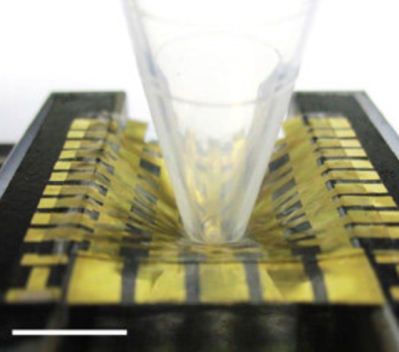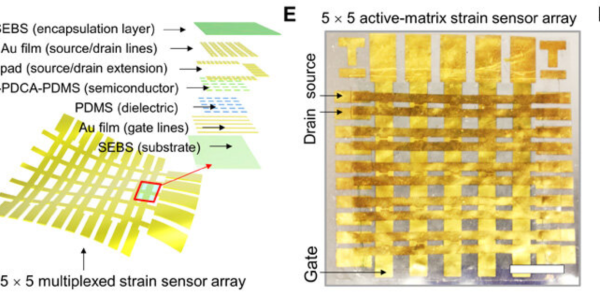In a report published by Science Advances, a research team from the United States and Korea revealed a strain-sensitive, stretchable, and autonomous self-healing semiconductor film. In other words, they’ve created an electronic skin that’s capable of self-regulation. Time to cue the ending track from Ex Machina? Not quite.

Apart from the inevitable long timeline it will take to see the material in production, there are still challenges to improve sensing for active semiconductors. The methods used by the team – notably using a dynamically cross-linked blend of polymer semiconductor and self-healing elastomer – have created a film with a gauge factor of 5.75×10^5 at full strain. At room temperature, even with fracture strains, the material demonstrated self healing.
The technique mimics the self healing properties of human skin, accelerating the development of biomedical devices and soft robots. While active-matrix transistor array-based sensors can provide signals that reduce crosstalk between individual pixels in electronic skin, embedding these rigid sensors and transistors into stretchable systems causes mechanical mismatch between rigid and soft components. A strain-sensing transistor simplifies the process of fabrication, while also improving mechanical conformability and the lifetime of the electronic skin.
The synthetic skin was also shown to operate within a medically safe voltage and to be waterproof, which will prevent malfunctions when placed in contact with ionic human sweat.
[Thanks Qes for the tip!]











